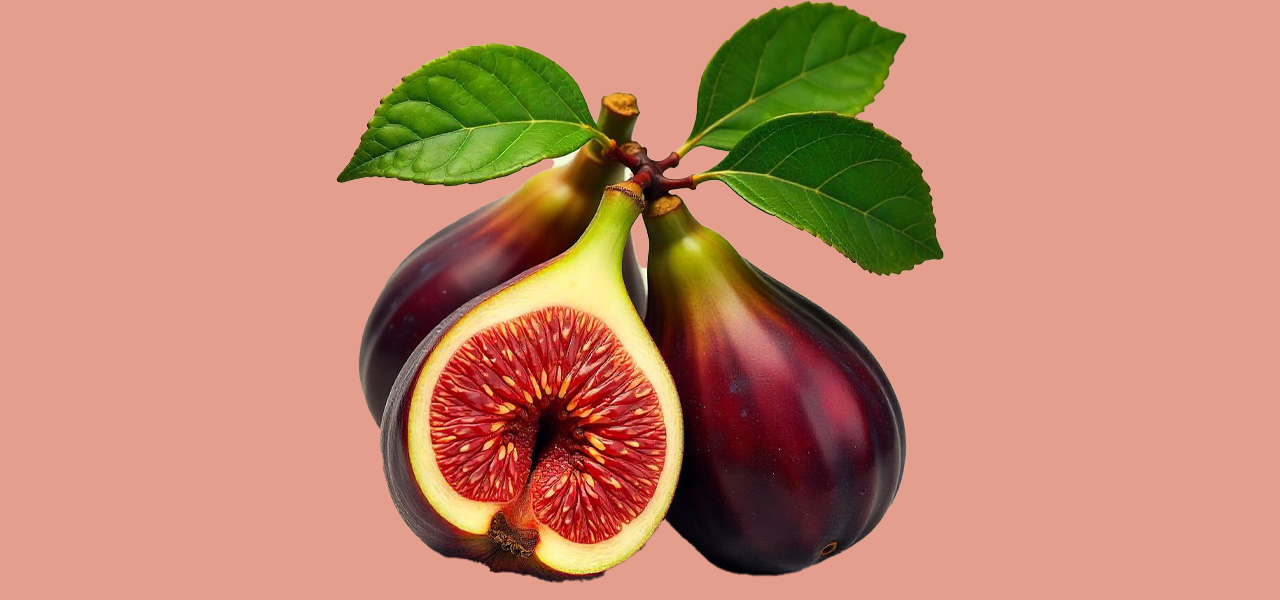Introduction:
Figs, often dubbed the “fruit of the gods,” have been a cherished staple in various cultures for centuries. These delectable, sweet fruits are not only a delightful addition to your meals but also pack an impressive array of health benefits. In this blog post, we will explore the nutritional profile of figs, their various health benefits, culinary uses, and ways to incorporate them into your diet, all while emphasizing their relevance in today’s health-conscious world. Figs, known scientifically as Ficus carica, are an ancient fruit cherished for their unique flavor, tender texture, and numerous health benefits. Originating from the Mediterranean region, figs have been cultivated for thousands of years, making them one of the oldest cultivated fruits in human history. Their sweet, honey-like taste, combined with a rich, chewy texture, makes them a delightful addition to a variety of dishes, from salads and desserts to savory meals.
What Are Figs?
Figs (Ficus carica) are small, pear-shaped fruits that belong to the Moraceae family, which also includes mulberries and breadfruit. They are native to the Mediterranean region and Western Asia but are now cultivated in various parts of the world, including the United States, particularly in California. Figs come in various varieties, ranging from green to purple, and they can be enjoyed fresh, dried, or even canned.
Figs are not just a one-size-fits-all fruit; they come in a stunning array of varieties, each with its own distinct flavor and texture. From the vibrant green of the Adriatic fig to the deep purple hues of the Black Mission fig, each type offers a unique taste experience. Their sweet, honey-like flavor pairs well with both sweet and savory dishes, making them a versatile ingredient in culinary creations.
Nutritional Profile of Figs
Figs are not just a sweet treat; they are also rich in essential nutrients. A serving of raw figs (about 100 grams) provides:
- Calories: 74
- Carbohydrates: 19 grams
- Dietary Fiber: 3 grams
- Sugars: 16 grams
- Protein: 0.75 grams
- Fat: 0.3 grams
- Vitamins: Rich in Vitamin A, Vitamin B6, Vitamin K, and Vitamin C
- Minerals: High in potassium, magnesium, calcium, and iron
This impressive nutritional profile makes figs a nutrient-dense food, contributing to various health benefits.
Health Benefits of Figs:
These fruits can be enjoyed in various forms: fresh figs burst with juiciness, while dried figs provide a concentrated sweetness and chewy texture. Canned figs, often preserved in syrup, can add a delightful twist to desserts and pastries. Whether you are snacking on them raw, adding them to salads, or using them as a natural sweetener in baked goods, figs offer endless possibilities.
As the health trend continues to rise, figs have gained recognition not only for their delightful taste but also for their nutritional benefits. Rich in dietary fiber, antioxidants, and essential minerals such as calcium and potassium, figs can contribute to overall health and well-being. With their complex flavor profile and impressive health benefits, figs truly stand out as nature’s versatile gem, ready to elevate any dish or diet.
- Rich in Antioxidants
Figs are loaded with antioxidants, such as polyphenols, which help combat oxidative stress in the body. These antioxidants protect cells from damage caused by free radicals, potentially reducing the risk of chronic diseases, including heart disease and cancer.
- Promote Digestive Health
Figs are an excellent source of dietary fiber, which is crucial for maintaining a healthy digestive system. Fiber aids in digestion by adding bulk to the stool, preventing constipation, and promoting regular bowel movements. Additionally, figs contain natural enzymes that can help improve digestion and nutrient absorption.
- Support Heart Health
The high potassium content in figs is beneficial for heart health. Potassium helps regulate blood pressure by counteracting the effects of sodium. Additionally, the fiber and antioxidants found in figs can help lower cholesterol levels, reducing the risk of heart disease.
- Aid in Weight Management
Figs can be a great addition to a weight management plan. The fiber content keeps you feeling full and satisfied, reducing the likelihood of overeating. Moreover, figs are low in calories, making them a healthy snack option that won’t sabotage your diet.
- Boost Bone Health
Figs are a good source of calcium and magnesium, two essential minerals for maintaining healthy bones. Calcium is vital for bone density, while magnesium plays a crucial role in converting vitamin D into its active form, further supporting bone health.
- Regulate Blood Sugar Levels
Research suggests that figs may have a positive effect on blood sugar regulation. The soluble fiber in figs can help slow the absorption of sugar in the bloodstream, which may aid in maintaining stable blood sugar levels, making them a suitable option for people with diabetes.
- Enhance Skin Health
Figs can benefit your skin due to their high antioxidant and vitamin content. They can help combat signs of aging, such as wrinkles and fine lines, and promote a healthy, radiant complexion. Figs are often used in skincare products for their hydrating and soothing properties.
- Improve Immune Function
The vitamins and minerals found in figs, particularly vitamin C and antioxidants, can help strengthen the immune system. A robust immune system is essential for fighting off infections and diseases, making figs a valuable addition to your diet during cold and flu season.
- Support Mental Health
Figs are also beneficial for mental health. They contain B vitamins, such as B6, which play a role in regulating mood and reducing symptoms of anxiety and depression. The nutrients in figs may also help improve cognitive function and memory.
How to Choose and Store Figs
When selecting fresh figs, look for fruits that are plump, slightly soft to the touch, and have a rich color. Avoid figs that are overly mushy or have blemishes. Dried figs should be plump and moist, not hard or shriveled. To store fresh figs, keep them in the refrigerator in a breathable container for up to a week. Dried figs can be stored in an airtight container in a cool, dry place for several months.
Conclusion
In conclusion, figs are not just a delightful fruit; they are a powerhouse of nutrition and health benefits. Their rich antioxidant content, digestive properties, and ability to support heart and bone health make them an essential addition to a balanced diet. Whether enjoyed fresh, dried, or in various culinary creations, figs provide a unique blend of flavor and nourishment. By incorporating figs into your meals and snacks, you can elevate your overall health while indulging in their sweet, succulent taste. Embrace this “fruit of the gods” and discover the myriad ways figs can enhance your well-being.Figs are a truly remarkable fruit, offering a wealth of health benefits while being deliciously versatile in the kitchen. Their impressive nutritional profile, combined with their rich history and cultural significance, makes them a valuable addition to any diet. Whether enjoyed fresh, dried, or incorporated into various dishes, figs are sure to enhance your culinary experience and contribute to your overall health and well-being. So, next time you’re looking for a sweet treat or a nutritious snack, consider reaching for figs, nature’s sweet super food.









